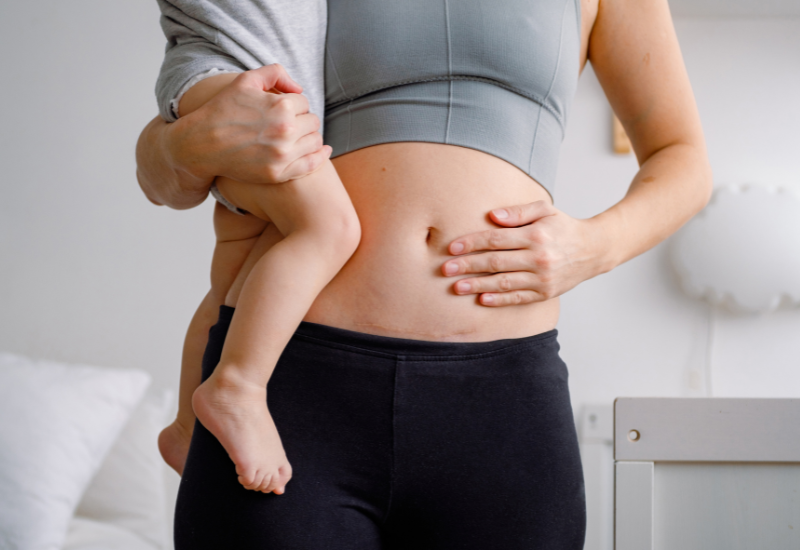Unspoken Emotional Journey of Postpartum: How to Heal Beyond the Physical
/in Uncategorized /by MaternalGroundingPostpartum recovery is often seen through a physical lens—healing from birth, managing sleep deprivation, and adapting to the demands of motherhood. But what about the emotional side? While your body is healing, your mind is also undergoing a significant transformation. This emotional journey is often unspoken, leaving many new mums feeling isolated in their struggles. Feelings of identity loss, overwhelming pressure, or even sadness can take you by surprise.
In this blog, we’ll explore the emotional aspects of postpartum recovery, why it’s crucial to acknowledge them, and how to heal beyond the physical. You’re not alone on this journey, and healing emotionally is just as important as physical recovery.
1. The Silent Emotional Struggles of Postpartum
The first few weeks and months after birth can feel like an emotional whirlwind. While you may feel joy and love for your baby, other emotions like anxiety, guilt, and a sense of loss can creep in. These feelings are common but often go unspoken. Here are some silent emotional struggles that many mums face:
Feelings of Isolation:
Becoming a mother can feel incredibly isolating, especially if your focus is constantly on the baby. You might miss your pre-motherhood self or feel disconnected from friends and social circles. The shift from independence to full-time caregiving can be overwhelming.
Identity Shifts:
Motherhood transforms you, and while this can be beautiful, it also means grappling with a new identity. Many women struggle with a sense of loss for who they were before becoming a mum. This shift can bring about feelings of confusion or a longing for the life they once had.
The Pressure to “Bounce Back”:
Societal pressure to quickly “bounce back” physically and emotionally can leave you feeling inadequate if you’re not “back to normal” within a few weeks. Postpartum bodies and emotions take time to heal, and there is no rush to return to your pre-pregnancy self—physically or emotionally.
Postpartum Anxiety or Depression:
For some mums, the emotional toll of postpartum may manifest as anxiety or depression. Feeling persistently overwhelmed, tearful, or disconnected from your baby are signs that emotional support is needed.
These struggles are part of the postpartum journey, and they deserve to be acknowledged. Healing emotionally is a critical step toward feeling balanced and grounded in this new chapter.
2. The Importance of Emotional Acknowledgement
Many women are so focused on physical healing after birth that they overlook their emotional well-being. However, your emotions are just as vital to your postpartum recovery. Ignoring feelings of sadness, stress, or loss can lead to burnout, or even postpartum depression or anxiety.
Why Emotional Healing Matters:
Emotional health affects your ability to bond with your baby, communicate with your partner, and take care of yourself. When you acknowledge your emotions, you give yourself permission to heal in a deeper way. It’s not selfish to focus on your emotional needs—doing so can help you show up as a more present and loving mother.
How to Begin Acknowledging Emotions:
- Talk About It: Share your feelings with someone you trust—a friend, family member, or a professional. Simply verbalizing your emotions can bring relief and validation.
- Journaling: Writing down your feelings can help you process and make sense of your emotional journey. It’s a private, reflective way to understand what’s going on internally.
Acknowledging and talking about your emotions creates space for healing and acceptance.
3. How Massage Supports Emotional Well-Being
Postpartum massage is often thought of as a way to ease physical discomfort, but its benefits go far beyond that. Massage can play a key role in supporting emotional healing by offering much-needed self-care and emotional release.
1. Reducing Stress and Tension:
The physical act of massage helps reduce stress hormones like cortisol, which can ease feelings of anxiety and overwhelm. As your body relaxes, your mind does too, giving you a chance to reconnect with yourself.
2. Promoting Emotional Balance:
Massage increases serotonin and dopamine—your body’s natural mood enhancers. These hormones help improve emotional balance, leaving you feeling calmer and more in control of your emotions after a session.
3. A Time to Reconnect with Yourself:
Postpartum massage provides more than just relief—it offers you a rare moment to focus on yourself. In the early months of motherhood, your time and energy are often dedicated to your baby. Taking this time for massage helps you reconnect with your own needs, offering emotional space and a break from the demands of caregiving.
At Maternal Grounding, our postpartum massage services are designed to support both your physical recovery and emotional well-being. It’s a safe space for you to relax, release tension, and process your feelings.
4. Mindful Practices for Emotional Balance
In addition to massage, mindful practices can help you navigate the emotional journey of postpartum. Here are a few simple ways to incorporate mindfulness into your daily routine to support emotional balance:
1. Practice Deep Breathing:
Deep, intentional breathing is one of the easiest ways to calm the mind. When you feel overwhelmed, take a few moments to breathe slowly and deeply. Inhale for a count of four, hold for four, and exhale for six. Repeat this several times to help center your emotions.
2. Be Kind to Yourself:
It’s easy to be hard on yourself when you feel like you’re not “doing enough” as a mum. Practice self-compassion by treating yourself with the same kindness you would offer a friend. Recognize that you’re doing your best, and that’s enough.
3. Take Small Breaks:
Even five minutes of quiet time can make a world of difference. Whether it’s a short walk, a cup of tea, or simply sitting quietly, give yourself permission to step away and recharge. These small moments of mindfulness help you reset emotionally.
Conclusion: Embracing Your Postpartum Journey
Postpartum healing is about more than just your physical recovery—it’s about honoring the emotional journey as well. Acknowledging your emotions, seeking support, and taking time for self-care through massage and mindfulness can help you heal fully, both inside and out.
You don’t have to rush this process. The postpartum period is a time of transformation, and it’s okay to take the time you need to adjust, heal, and embrace the new chapter of motherhood.
If you’re ready to focus on your emotional and physical well-being, consider booking a postpartum massage with Maternal Grounding. We’re here to support you every step of the way on your healing journey.




